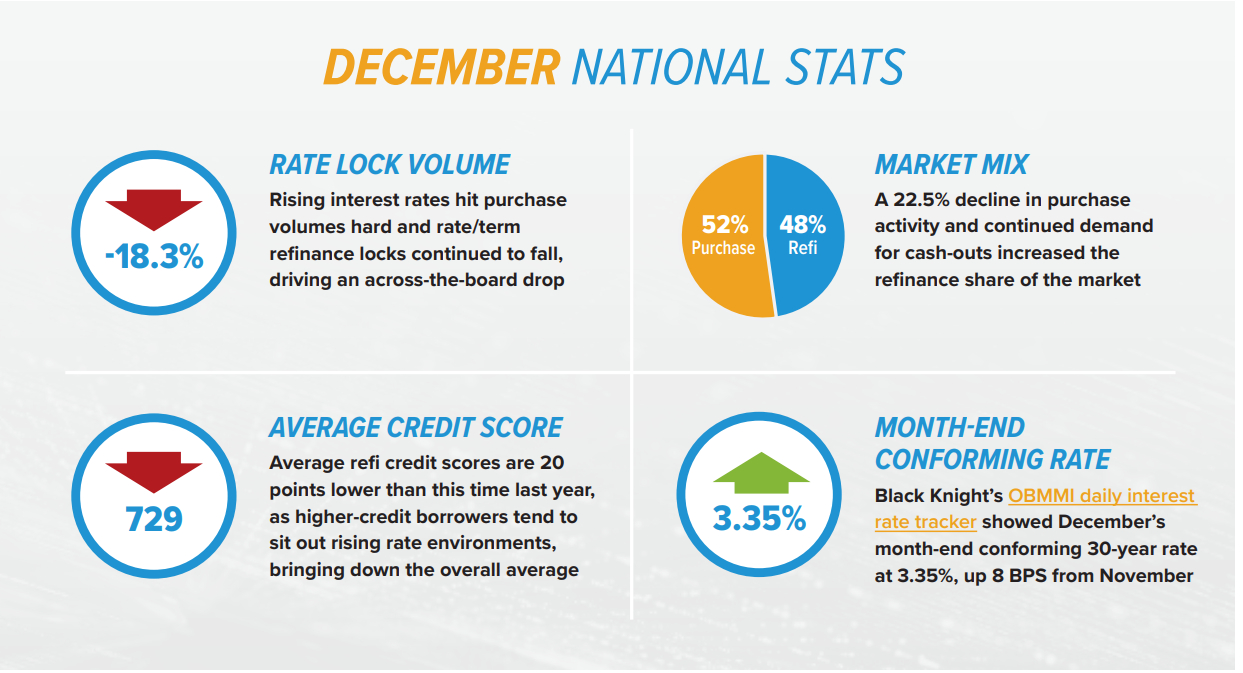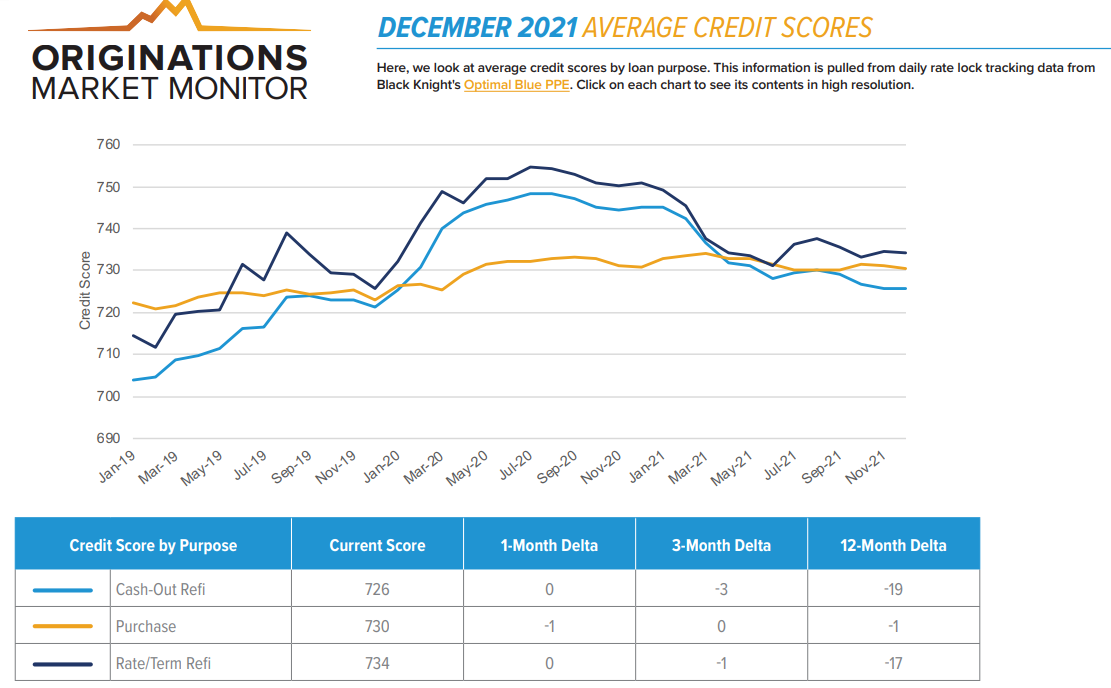 The latest Originations Market Monitor from Black Knight Inc, shows another big slowdown in momentum in December as rate lock volumes fell across the board, driven by a 22.5% drop in purchase loan locks.
The latest Originations Market Monitor from Black Knight Inc, shows another big slowdown in momentum in December as rate lock volumes fell across the board, driven by a 22.5% drop in purchase loan locks.
The report leverages daily rate lock data from Black Knight's Optimal Blue PPE subsidiary.
In addition, locks on rate/term refinances fell another 17.1% to its lowest level in the last two years. Locks on cash-out refinance loans also dropped 10%, but are still up about 18% year-over-year due to buyers taking advantage of soaring equity levels.
"With the Federal Reserve speeding the tapering of its bond buying and indicating multiple rate hikes in 2022 to curb inflation, 30-year conforming rates sat above 3.3% for much of December," said Scott Happ, president, Black Knight Secondary Marketing Technologies. "Indeed, our OBMMI daily interest rate tracker showed average rates at year's end within just two basis points of the 2021 high of 3.37%. Likely in response to those rising rates—and the seasonal slowdown in home purchases—we saw locks decline across all product types in December, with total volume down 35% year-over-year."

According to Black Knight, this December marked the fourth consecutive monthly decline in overall origination volume, bringing it to its lowest level since February 2020, prior to the onset of the pandemic.
“The month's pipeline data showed overall rate locks down 18.3% from November, driven by a 22.5% drop in purchase loan locks. Despite the decline, purchase locks were up marginally on a year-over-year basis,” the report said. “Rate/term refinance lending activity continued to tumble, falling another 17% to hit the lowest level for such lending in two years. The drop in purchase lock volume increased the refinance share of the market to 48%, though it also coincided with average refinance credit scores that were 20 points lower than this time last year. This is not unfamiliar behavior as higher-credit borrowers tend to sit out rising rate environments, which brings down the overall average. Non-conforming loan products continued to gain market share at the expense of agency volumes in December as the average loan amount rose another $4,000 to finish the year at $341,000.”
"Seen in the light of the normal seasonal slowdown in home sales as well as our current rate environment, December's more than 20% drop in purchase loan locks isn't all that surprising," Happ continued. "Neither was the continued decline in rate/term refinance lending, though the size of the annual decline is noteworthy, if not sobering. While cash-out refi locks were also down for the month, they're still up nearly 18% from the same month last year as the product remains somewhat insulated by borrowers taking advantage of soaring home equity levels."

Among other data found by the report, the average credit score of someone who gets a lock for a purchase loan was 730 points, while the average for a cash-out refi or a rate/term refi stood at 726 and 734 points, respectively. The average credit score of a conforming loan was 744 points, while the average score of an FHA or VA was 660 and 709 points.
Click here to view the report in its entirety, including a breakdown of data for the top-20 metropolitan areas.

 theMReport.com Your trusted source for mortgage banking news
theMReport.com Your trusted source for mortgage banking news








